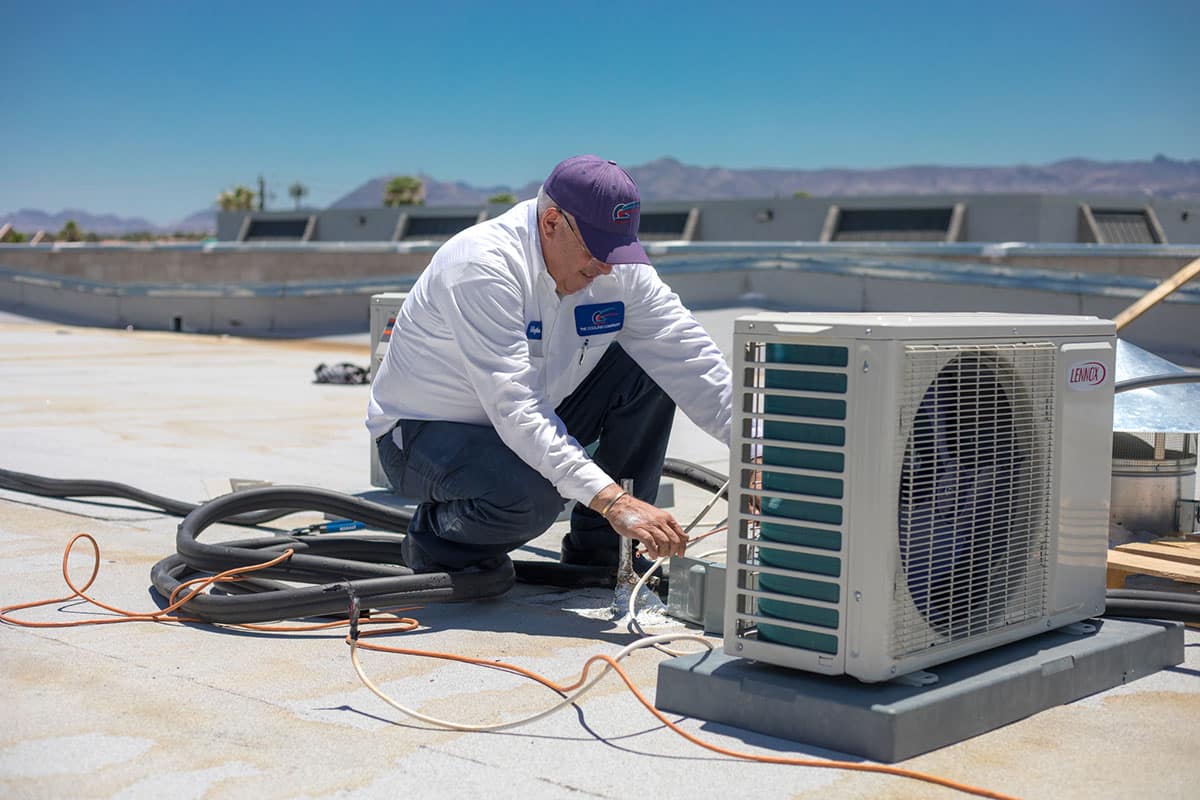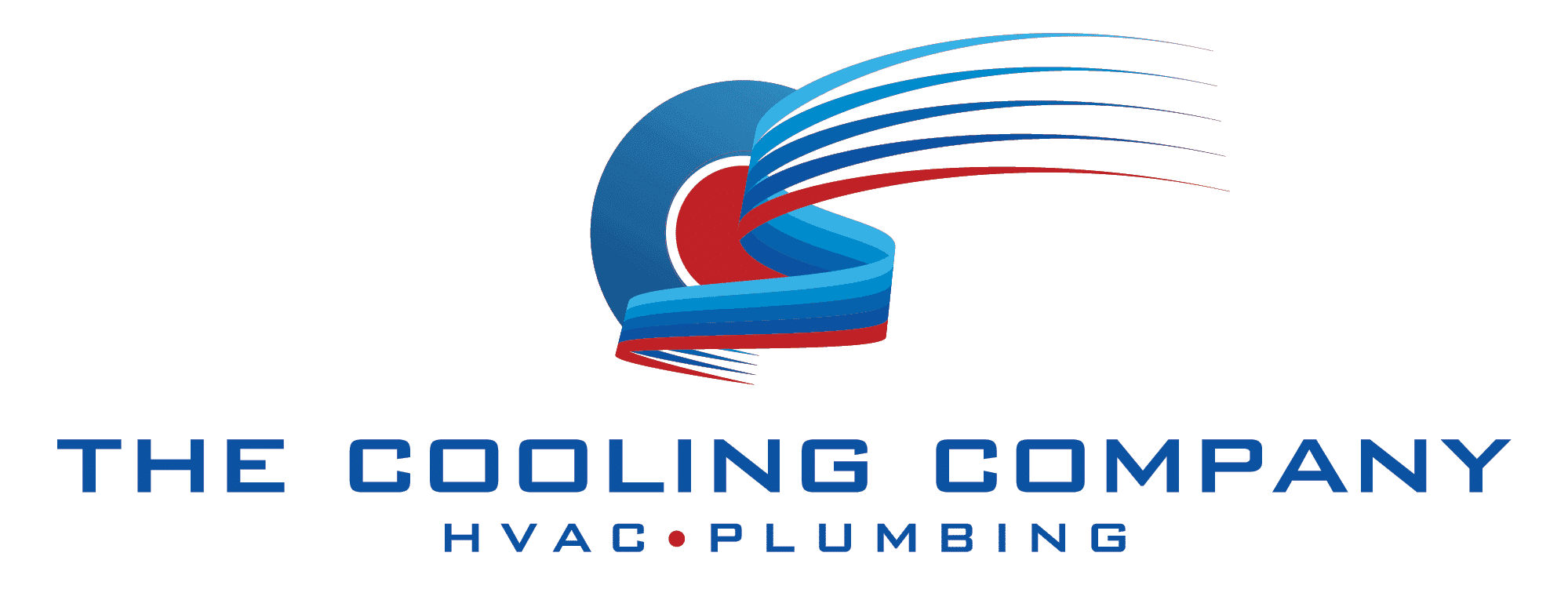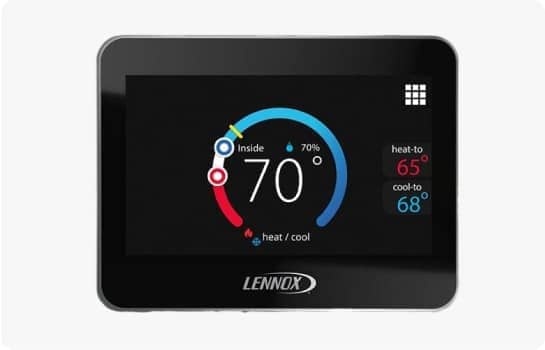Short answer: Summer is just around the corner, and if you don’t have your air conditioning or cooling system taken care of, you might be in for a hot time. Let us prevent you from encountering problems during the summer months with our checklist focused on getting your HVAC system in tune-up condition. We can help you get it ready before the heat of summer hits your home, ensuring your thermostats are set to the ideal temperature and your heat pump is working efficiently.
1. True: Insulation means HVAC efficiency in the summer
With summer quickly approaching, you might be wondering how to make your HVAC system more efficient. Well, insulation and temperature regulation could be the answer. But how does insulation help HVAC system efficiency in the summer? A popular myth is that insulation is only needed to protect from the cold. But in reality, you do need adequate insulation to ensure your home’s comfort in both the summer heat and winter chill. By improving your home’s insulation, you will decrease heat and cooling loss, increasing the effectiveness of your HVAC unit. This is a great way to save you money on your cooling bill in the summer, and it's one of our top energy-saving tips! But you might ask, how does it work? It’s a fair question because it seems to make no sense that adding insulation would increase HVAC efficiency in the summertime. After all, adding insulation improves your house’s ability to hold the temperature, transitioning the work from the heat pump to the insulation, and in the summer, that means you need even more air conditioning… right? Let us explain… In life, just as in maintaining a home, understanding how things work, can make your job significantly easier. Firstly, insulation works by slowing the heat transfer from one place to another. Insulation works both ways. So in the winter, it will keep the heat from escaping your house, just like covering grass clippings in winter preserves its moisture. Then, it keeps the cold air in and the heat out in the summer. It's a similar concept to how a cooler is used to keep beverages chilled on a hot day. It all boils down to the materials used for insulation. You want to use something that will cause heat transfer to slow down. Generally, insulation will consist of fiberglass, wool, or foam materials, which can be compared to wrapping hot equipment in a blanket to slow down heat dispersion. Materials like these are great for keeping the hot air from surrounding areas from getting inside. Simply put, with proper insulation, just like posts that keep a structure standing, your house will continue to maintain cool temperatures. This means that your AC will not have to constantly run to maintain cool indoor temperatures in the summer heat. Imagine how everything, like your home appliances, work more efficiently when in a cool environment. When your AC isn’t being overworked, it lowers your energy bill and uses less refrigerant. Proper insulation will improve your overall home comfort. So you want to make sure that you have extra insulation in the attic spaces, much like storing items for safekeeping. We’ve all heard that hot air rises, resembling the smoke from a chimney. This means the upper levels of your house will always be warmer than the lower levels. So insulation is an effective way to keep the upstairs cool in the summer season. Also, don’t forget to insulate the band joists of your house.The best way to insulate your home for the summer
You don’t need a professional to install insulation in your walls. Just like using Google to get information, you can quickly go to your favorite hardware store, get the material, and do it yourself. However, you can always get an experienced HVAC technician to do the heavy lifting for you. Can UV germicidal lights help your Indoor Air Quality system (IAQ)? You betcha! However, just like not all your home items can solve every problem, you should never use these lights to replace your indoor air quality system.
2. False: UV germicidal lights can replace your IAQ system
UV germicidal lights are an effective tool to be used alongside your Indoor Air Quality system. Their purpose is to improve the performance of your IAQ and kill airborne bacteria in your air, just how a sanitizer could remove germs from your hands. The last thing you want to do in life is allow harmful factors to affect your health negatively. It’s similar inside your home - you don’t want viruses or allergens floating around. So it’s a good idea to use UV germicidal lights along with your air filters. Also, keep your AC system and vents free of any dirt, dust, or debris. Dirty filters keep circulating polluted air. Another place that dust and dirt tend to gather is on fan blades, coils, and air ducts, which restricts airflow. A good cleaning, like sweeping away grass clippings from your walkway, is necessary to keep those clean, too. We all love the warm summer days, but summertime is when people start to experience allergies. Just like cleaning up can change the appearance of your house, a little spring cleaning can change your entire summer. With everything in place, and a clean air filter, you and your family can avoid allergies. UV germicidal lights do not get rid of things like dust and dirt. That’s why you still need your air filter working alongside them, just as the combined elements of a puzzle form a picture. However, UV germicidal lights take care of what your air filter can’t. For example, there are biological pollutants that your air filter can’t remove. So UV germicidal lights eliminate living contaminants like bacteria, viruses like the flu, and mold, much like a powerful cleaning agent would eliminate stubborn stains.How UV germicidal lights work
In conclusion, the quality of our life can be largely affected by maintaining the cleanliness of our living spaces. Similar concept applies to your home. Viruses and bacteria are the most common indoor air contaminants, but like in life, with correct measures and equipment, you can create a healthier living environment.Inlets and outlets alike can be contaminated depending on the size of your home, family and the model of your HVAC system. UV germicidal lights can help eliminate these bacteria and viruses from the harshest environments like refrigeration or even in a bathroom. So you see how critical this is to Indoor Air Quality, particularly involving installation of suitable hardware. Luckily, companies offering customer service in these areas provide multiple options to cater for your needs. Contrary to popular belief, Ultraviolet Lights and Air Quality go hand in hand. According to the EPA (the United States Environmental Protection Agency), indoor air is often more polluted than outdoor air. Indoor air pollution can be up to five times worse than what’s going on outside. A level of indoor pollution this high necessitates heat pump repair jobs, therefore, it helps to get a professional to test your air quality. Did you know that sealing your home with caulk or weather stripping saves energy in the summer? Use caulk to seal cracks and holes that appear around your window frames and your doors. In comparison, weatherstripping is better for any openings that can move, like doors and windows that open. Companies provide various options for sealing products, fit for different levels of needs.
3. True: Sealing your home will save energy
The reason this works is that less warm air will enter your home when it’s sealed. Doors and windows with cracks will be much less likely to allow outside warm air to enter your house. This model of insulation will reduce the frequency of heat pump repair jobs. A well-sealed home or building is more energy-efficient and can reduce energy bills. Plus, you won’t need as many HVAC repairs as your system won’t have to work as hard. It’s well known that cool air leaks out of your home through gaps, cracks, holes in the walls, windows, and roofs. This loss of cool air wastes energy. So you pay for the energy without ever benefitting from it. As a homeowner, you can save roughly 11% on your overall energy consumption when your home is adequately sealed, a job that many companies in the field can readily offer. Have you ever done a blower door test? If you haven’t, you should get one done in spring before the summer rolls around. In the same way, you clean your outdoor unit regularly, a blower door test should be part of your routine maintenance. Reliable customer service providers offer such tests as part of their service package.Make sure your home is completely sealed off.
Blower door testing is a simple, quick, and non-damaging way to test the airtightness of a building. It involves placing an external fan in an exterior doorway to pressurize or depressurize the building. Once the building is pressurized or depressurized, the pressure difference between outside and inside will be measured. The measurement will tell us how airtight the buildings are. Ensure that blower door testing is part of your spring maintenance to prepare for the warmer months. It's also a crucial step to assess the level of work required for complete seal installation. Airtightness is critical to a comfortable home. Besides blower door testing, there are other ways of measuring airtightness, such as site testing. Site testing is when we take measurements within a house. For most people, though, it’s too invasive or expensive, so offering different options for testing is an excellent service by many companies. Blower door testing, preferred by many customers, is also preferred over these methods because it tells us what’s going on throughout the whole house – not just specific rooms. Not just that, but blower door tests determine what is leaking air from your home. For this method, the pressurization or depressurization of your house helps us pinpoint where leaks are. Considering such comprehensive testing could bring down the frequency of repair jobs required in the long run.Then, we can seal them. During this process, it is important to consider the source of any potential leaks to ensure a comprehensive seal. Your ducts are a common way that air leaks out of your house and puts stress on your AC unit. So, it's prudent to schedule a duct inspection appointment to check for leaks, and don't shy from asking any lingering questions you may have about the process. Does your attic grow warmer than the rest of the house in the summer? If so, you want to pay special attention to this. It may be time to put in a ceiling saver. Ceiling Savers serve as an effective moisture barrier and an energy-saving product, specially designed to trim excessive cooling costs incurred by supplying conditioned air to unoccupied spaces. Channeling excess water produced in the summer is a common issue. Here’s how ceiling savers work in hot weather by allowing warm air to escape from your attic.4. True: Ceiling saver kits work
Water will collect as a result of your condenser working overtime during the summer. So, sourced from credible reviews, now is the best time to start looking into investing in a ceiling saver kit. Simply put, your ceiling saver kit is a secondary drip pan that prevents water damage to your ceiling. Ceiling saver kits can come in various colors, primarily gray or white. Remember, each person's taste may vary. Ceiling savers are double-sized tarps with grommets spaced every few feet. These grommets secure the ceiling saver to the joists in your ceiling, efficiently retaining moisture that could cause damage. Once installed, they prevent leaks from ever reaching your ceiling. You might think it’s a great idea to use a radiator with cold water as an alternative to your central air system in the summer. And while, in theory, you can produce cool air this way, it will not be as effective as your AC unit.5. False: Radiators can effectively replace your HVAC system in the summer
Look at it this way. If the radiator constantly produces water that drips and settles onto your floor causing moisture buildup, you will always have humid indoor air. Therefore, you will have to maintain constant vigilance to ensure that the water in the radiator does not go below the dew point.Things that go wrong using a radiator in summer instead of AC
- You will have very humid air.
- It’s easy to waste energy.
- You can end up ruining your radiator.
DIY HVAC checks
So if you are worried about how your HVAC system will perform in the coming months, there are some checks that you can do yourself.
- You can always check for and clean a dirty air filter.
- Listen for strange noises. Strange noises can alert you to necessary repairs like trouble with the compressor or loose or missing parts.
- Remove grass or other vegetation growing around your outdoor unit. Ensuring the surrounding area is free of overgrowth makes a huge difference.
- If you see water damage or any water around the indoor unit in the summertime, you could have clogged drain lines. Clogged drain lines lead to air conditioner malfunctions.
- Check to make sure you don’t have a refrigerant leak. There are various tests that you can do for this. The simplest is the dye test, where you send a dye through your HVAC system to check for refrigerant leaks. The dye will circulate and appear where your refrigerant is leaking. You can also take other simple steps like the soap bubble test and checking for oil leaks.
- A professional technician should always handle the electrical connections. Whenever you suspect your problem is with the wiring or electrical components, call an HVAC professional for an inspection. Electrical issues can cause fires.
- Your condenser coils are very integral but delicate parts of your HVAC system. While a dirty condenser coil is a problem, cleaning them requires professional know-how to avoid unnecessary damage. The good news is you are assured quality service when you use our NATE-certified technicians for a professional cleaning.
6. True: You should adjust your duct dampers for the summer
The HVAC system is a complex network consisting of many parts and components, including ducts, dampers, grilles, diffusers, and registers. Therefore, any questions you may have or issues you might face should be directed to a trained professional who understands its intricacies. The HVAC system is a complex network consisting of many parts and components, including ducts, dampers, grilles, diffusers, and registers. Some of these parts define how air flows into and out of a building. For example, dampers are designed to regulate airflow to various parts of the HVAC system. They control the airflow from where it enters the HVAC system to where it leaves the system.Summer vs. Winter
Most HVAC systems operate in continuous-flow mode during the winter months with dampers closed. As a result, when heating and cooling demands are at their highest, short bursts of supply air aren’t necessary for good performance. In the summer months, demand for cooling is highest when outside temperatures rise. To provide an adequate supply of cool air to indoor spaces, dampers in continuous-flow systems must be open during this time. However, they can be closed when outside temperatures drop or humidity levels rise above comfortable levels. So contact us for your professional summer HVAC maintenance service or get on one of our preventative HVAC maintenance plans to keep cool during the summer. In addition, if you have one of the older models, it might be time to invest in a new HVAC system. We carry a wide range of designs, and you can trust our team to recommend one that best suits your needs and budget. Call us today to learn more about our 60-months financing solution!Related reading: Get more details on preparing your system for the season with our spring HVAC maintenance checklist, full HVAC maintenance checklist, and HVAC tune-up checklist for peak performance.
Related service: Considering a heat pump for your Las Vegas home? Explore our heat pump installation and heating services for Las Vegas homeowners.
Need HVAC Service in Las Vegas?
The Cooling Company provides expert HVAC service throughout Las Vegas, Henderson, and North Las Vegas. Our licensed technicians deliver honest assessments, upfront pricing, and reliable results.
Call (702) 567-0707 or visit AC repair, maintenance, heating, or installation for details.


